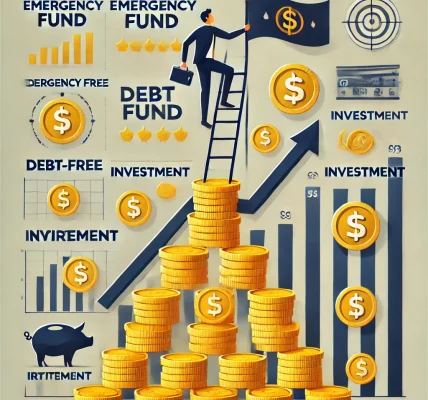Estate planning is a crucial aspect of financial management that ensures your assets are distributed according to your wishes after your passing. Many people overlook the importance of having a will, assuming it’s only for the wealthy or elderly. However, having a will and a structured estate plan is essential for protecting your loved ones and avoiding legal complications. In this guide, we will explore why you need a will and how to create one effectively.
Why Estate Planning Matters
Estate planning involves organizing your financial affairs to ensure your assets are distributed smoothly and legally. Without a proper plan, your estate may go through lengthy probate proceedings, which can be costly and time-consuming for your family.
Benefits of Estate Planning:
- Ensures Your Assets Go to the Right People – Prevents disputes and ensures your wishes are followed.
- Reduces Tax Burden – Minimizes estate taxes and protects wealth for your heirs.
- Avoids Probate Delays – Allows for quicker distribution of assets.
- Provides for Dependents – Ensures minors and dependents are cared for properly.
- Protects Business Interests – Helps in smooth business succession planning.
Understanding a Will and Its Importance
A will is a legal document that specifies how your assets will be distributed after your death. Without a will, your estate is subject to intestacy laws, which may not align with your preferences.
Key Reasons to Have a Will:
- Ensures Your Assets Are Distributed as Per Your Wishes
- Prevents Family Disputes and Legal Conflicts
- Allows You to Appoint a Guardian for Minor Children
- Speeds Up the Probate Process
- Provides Clarity on Debt Repayment and Liabilities
How to Get Started with Estate Planning
Step 1: Assess Your Assets and Liabilities
Before drafting a will, make a list of all your assets, including:
- Real estate properties
- Bank accounts
- Investments (stocks, bonds, mutual funds, etc.)
- Retirement accounts (401(k), IRA, etc.)
- Insurance policies
- Personal valuables (jewelry, art, etc.)
- Business holdings
Also, list your liabilities, such as loans and debts, to ensure proper planning.
Step 2: Choose Beneficiaries
Decide who will inherit your assets. You can distribute them among family members, friends, or even charitable organizations.
Step 3: Appoint an Executor
An executor is responsible for managing your estate after your death, including:
- Filing necessary legal documents
- Paying off outstanding debts
- Distributing assets to beneficiaries
Choose someone trustworthy, such as a family member, friend, or legal professional.
Step 4: Designate Guardianship for Minor Children
If you have young children, appoint a guardian who will take care of them in your absence.
Step 5: Draft Your Will
Work with a qualified estate planning attorney to draft a legally sound will. Ensure that it:
- Clearly states your wishes
- Meets state legal requirements
- Includes witnesses’ signatures
Step 6: Consider Additional Estate Planning Tools
- Trusts: Can help minimize taxes and provide more control over asset distribution.
- Power of Attorney: Appoints someone to manage finances if you become incapacitated.
- Healthcare Directive: Specifies your medical care preferences in case of incapacitation.
Step 7: Review and Update Your Will Regularly
Life changes, such as marriage, divorce, childbirth, or acquiring new assets, may require updating your will.
Common Estate Planning Mistakes to Avoid
- Not Having a Will – Dying without a will can lead to legal complications and unwanted asset distribution.
- Failing to Update the Will – Not updating it after major life events can lead to unintended consequences.
- Not Considering Estate Taxes – Proper planning can minimize tax burdens on heirs.
- Choosing the Wrong Executor – An unreliable executor can mismanage the estate.
- Not Communicating with Family – Lack of clarity can lead to disputes among heirs.
Conclusion
Estate planning is not just for the wealthy—it is essential for everyone. Having a well-structured will ensures your assets are distributed according to your wishes, prevents family disputes, and safeguards your loved ones’ financial future. By following the steps outlined above, you can create a solid estate plan and gain peace of mind knowing that your affairs are in order. Start planning today to secure your financial legacy for future generations!




